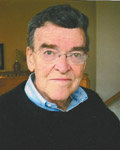November 29, 2017
Max’s Musings
 By Max Molleston
By Max Molleston
Most of us in this region know about the Pow Wow in Rock Island performed by the residents of the Mesquaki tribe. Some continue to reside in Tama County, Iowa on their reserved lands. One Indian language during WWII was used as a message devise. It could not be broken. It could not be understood by code experts on the side of the Axis (haven’t used that word for decades). I have researched this civilization, to create some understanding. Indian wording and oral presentations have been submitted, with some interpretations, as “poetry”. It is language style with varying vocal emphasis. The quest has been toward translation into lines. Most of this type of discovery came in interviews that turned out long and difficult. They settled into listening sessions over the last century or so. Storytellers passed down essence and particulars they had heard which match up to oral history for us. For the Indians, these presentations, were essentials of their people, based on life as it was lived with chiefs and warriors and others. Witness Lakota as interpreted from oral sessions. We wouldn’t know, but the language is read or spoken from right to left, at least for these interpretations.
Wica kin woecum wokokpeke kin ecunpi. Win yan jin ins ecumnpicansi kin ecunpe.
Joseph Marshall III, Lakota author says loosely translated it means “men did the dangerous work, and women did the impossible.” This reference is from one of Marshall’s books, “The Day The World Ended at Little Big Horn.” It is much more than battle deaths of the U.S. Seventh Cavalry unit lead by Lt. Colonel George Armstrong Custer. Warriors massed and turned back these U.S. assault plans. Full challenges were handled by natives of North America, whether or not they battled federal troops or visa-versa. Earliest times of North American conflicts saw British, French and Spanish adventurers on the lands. As far as the U.S. government was concerned, a mix of strategy and objectives, money or military purpose took over whole domains, tribes and nations Indians called their homelands. More about Indians, their languages, and how it was decided and what happened. Oral histories, interpreted and corrected to English wanted to “hear” emotions the storyteller revealed. Translators worked to create a simple line-poetry form from the lyric ways “to mimic” correct oral histories as heard. Gaining deeper understandings saw me reading parts or all of volumes on Indian life for centuries before and during “invasions” into their homelands. Join me in our new year as I continue searching out more poets and poetry for you.
Filed Under: History
Trackback URL: https://www.50pluslife.com/2017/11/29/maxs-musings-43/trackback/


